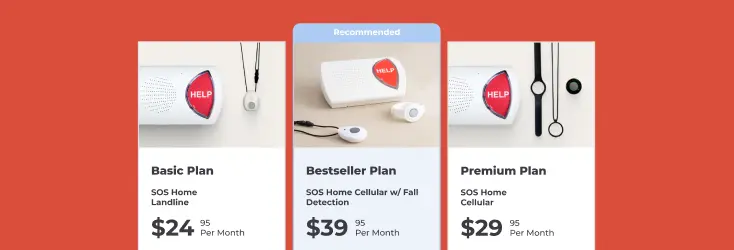You’ve been helping out your aging parents for some time now, but you’ve started to notice that your caregiving role, no matter how big or small, is negatively impacting your life or your health. You know that you have to take a step back with your caregiving role, but you feel guilty for letting your parents down and worried that they may not have the finances to replace you with a paid employee. You might also be anxious about what your other family members will think of your decision.
How can you prioritize your own life and health without ruining the relationship with your aging parents and extended family?
It’s a tricky situation, certainly, but it is far more common than you might think. Setting firm boundaries and readjusting your role in their life will benefit everyone. Here’s how to do it.
Determine What You Want
It’s easy to use absolutes when trying to step back from a stressful role in life. However, you can’t set a boundary without understanding what it is you want in the short and long term. Do you want to completely stop all caregiving tasks, or are you looking to get rid of a few tasks each week? Would you prefer to switch to helping out with tasks you can do online or over the phone?
In order to determine what you really want, don’t make any decisions when you are feeling frustrated or when you are leaving your caregiving visit. Instead, take time to jot down:
- What caregiving tasks you currently do
- How long each task takes you to complete, including planning or prep time
- How you feel emotionally when you are completing each task
Then, determine which of these tasks are the most emotionally taxing and which take the most time. These might be the tasks you’d benefit from taking off your plate first.
Understand How You Are Being Affected
While you are reviewing your caregiving journey, take time to think about how you are being affected by the role. Writing down or talking through this can help reinforce that you are making a good decision about setting boundaries, and you can pull out your list when you are feeling guilty or second-guessing yourself.
Think about:
- Your professional life
- Your personal life, including time with friends and family
- Your sleep patterns
- Your stress levels, including any new depression or anxiety
- Your anger, including any frustration toward your aging parents or other family members
- Your physical health, including whether you’ve been sick more since taking on these caregiving duties
Develop Your Boundaries
Now it’s time to go ahead and develop your new boundaries. Remember, a boundary isn’t cutting off your loved one from your time and care; instead, it is a line that is protecting your relationship with them as well as your personal health and wellness.
You can choose to stop all caregiving tasks, or you can choose to eliminate a few from your to-do list. It’s up to you, and whatever decision you make is a good one. You know your limits best, so ensure your boundaries protect your health.
It can be helpful to write down your boundaries before presenting them to your aging loved one. It can also be helpful to review your boundaries with your spouse, partner, or trusted friend as well.
Prepare Replacements (Or Not)
It might make you feel better if you go into a conversation about your new boundaries with options for your aging loved one to replace you. This means you might go in with a few phone numbers of home care agenciesyou have spoken to, or a list of resources like Meals on Wheels. Remember, you do NOT need to set up these replacement services, but it might help you feel less worried if you at least have some potential solutions to give your aging parents.
You might also feel like finding replacements for your caregiving chores is too overwhelming for you to do right now on top of everything else in your personal and professional life. That’s okay too.
Have the Conversation
This might feel like the hard part, but because you’ve taken the time to review your own needs and health concerns, having a conversation with your aging parents about your new boundaries might feel less intimidating. If you grew up in a family culture that supports setting boundaries, you can go into the conversation confidently and state your feelings (you still love them and want to spend time with them), worries (you are not as mentally and physically healthy now as you were when you didn’t have to attend to their caregiving needs), and boundaries (you can only help out a few hours a week from now on).
If you grew up in a family culture that didn’t support setting boundaries, you might need to state and restate your boundaries multiple times. Hold firm. Your mental and physical health is important too.
Be prepared, in all cases, to revisit the conversation. Your parents might have questions, and you should tell them often that you love them and will still visit, though your time will not necessarily be full of caregiving tasks. Your actions after the boundary conversation will reinforce your needs, so be sure you still visit, but don’t take on caregiving duties that you no longer want to do.
Need more assistance in finding care options near your loved one? Contact your local Area Agency on Agingto learn more about vetted services, resources, and assistance.
You’ve got this. Sometimes, being the best caregiver means giving yourself time away from the role.

















